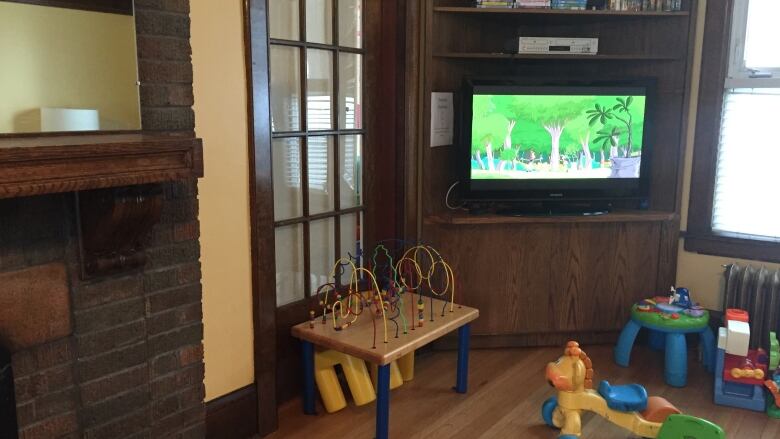Transition House marks 40th anniversary in Regina
Transition House provides shelter for women fleeing abusive relationships

They come in the middle of the day and they come in the middle of the night.
Sometimes they're alone. Sometimes they have several children in tow.
Sometimes the hurt is mostly emotional and sometimes they are beaten so badly they can't manage the stairs.
For 40 years, ReginaTransition House has sheltered women fleeing abusive relationships.
The shelter's executive director, Maria Hendrika, saidnobody wants to celebrate the fact that in 2016 we still need such a shelter, but we should mark its value to the community.
There's real strength in sharing stories within the shelter.- Maria Hendrika
"There has been service to the community for 40 years and we've been able to assist over 14,000 women and children in that time," Hendrika said.
One of those women is Dawn (for her safety, we can't use her real name).

"I just couldn't take it anymore," Dawn explained. She recalled that she tried to leave the relationshipbefore, but a sense of loneliness brought her back.
"I didn't like that lonely feeling," she said. "So, just to fill that void of loneliness, I went back to him."
Dawn spoke about how she and her partner moved to a small town where she had no contact with family and friends. She felt that move was part of a pattern of manipulative behaviorby her partner, who used the isolation as a means of control.
Breaking away, she said, was hard.
"It took me a while to realize I deserve better. My son deserves better," Dawn said.
AtTransition House she found safety and help to start a a new life. There was counselling, day care and skills training.
She also forged bonds with other women staying there.
"It felt so comfortable," Dawn said about the bright, sunlit living room and cozy kitchen the women shared.
A calm environment
Hendrika saidthe first priority, when new residents arrive, is calming everyone. Many arrive with a lot of chaos in their lives.
In time, staff at the shelter help the women devise a plan for building a new life.
They can stay for up to six weeks. According to the organization's last annual report the average length of stay, in 2014-2015, was 21 days.
Hendrika notes that much has changed since 1976. Policingrelating to domestic abusehas changed considerably. As well, community supports for families in crisis have undergone massive change in the four decades.
While domestic abuse isn't the dirty secret it once was, and more people are speaking openly about the ongoing challenges, Hendrika saidone thing at the core of addressing the issue remains the same: women drawing strength from each other.
"There's real strength in sharing stories within the shelter," Hendrika said.
According to the 2014-2015 annual report, ReginaTransition House provided shelter to272 people, including:
- 125 women (up 27 per cent from the previous year).
- 147 children (up 24 per cent from the previous year).
Almost 30 per cent of the organization's operational budget is supported by donations (23 per cent in direct donations and six per cent from the United Way).












_(720p).jpg)


 OFFICIAL HD MUSIC VIDEO.jpg)
.jpg)



























































































